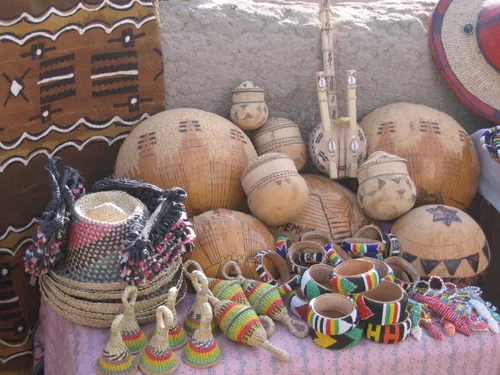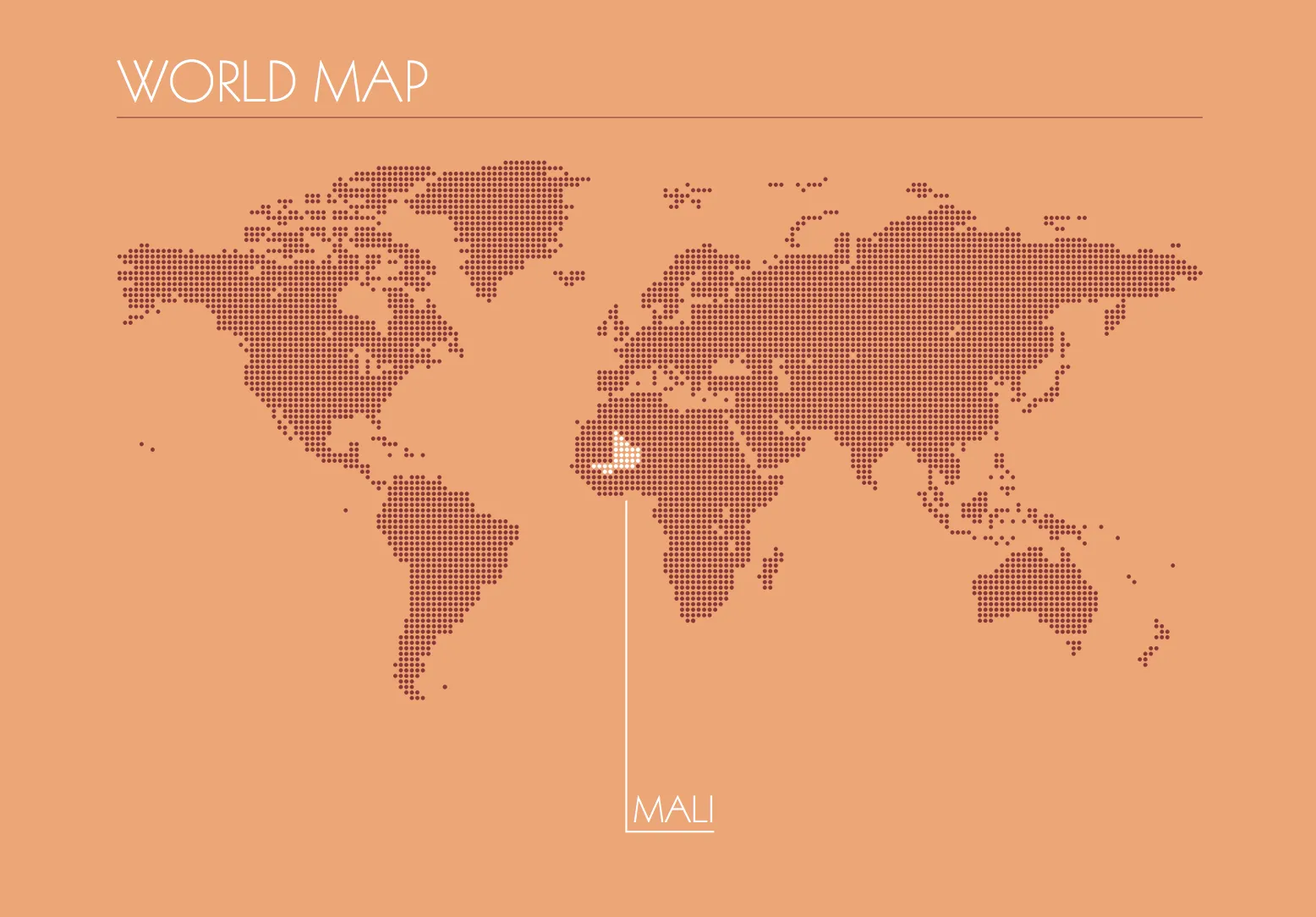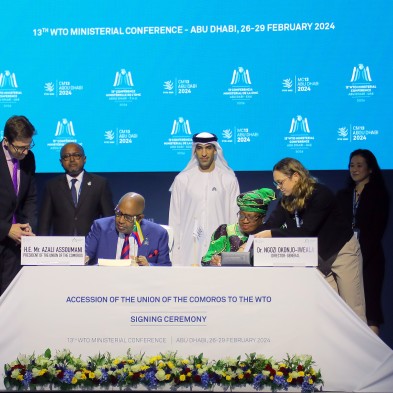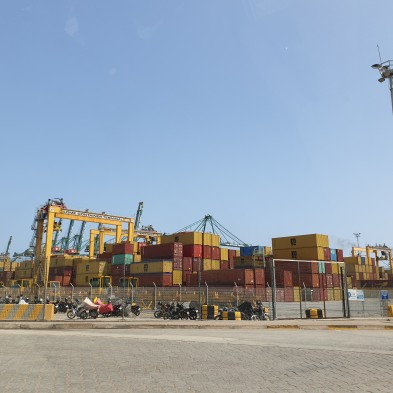
Mali has embedded trade and sectoral strategies into its current Growth and Poverty Reduction Strategy, with the support of EIF.
Targeted work with key sectors has been essential in strengthening the institutional and technical capacities of producers and exporters to play a more active role in the commercialization of Mali's products. This includes impactful work with the gum arabic sector, which provides income to the poorest of the poor in the country.


Trade institutional capacity building
- Mali has mainstreamed trade into its national development strategies (Poverty Reduction Strategy Papers (PRSPs) 2007-2011; PRSP 2012‑2017; the National Development Strategy 2016-2018) and currently the Strategic Framework for Economic Recovery and Sustainable Development (CREDD).
- Trade has been strengthened in the CREDD. Trade has been retained among the national priorities. One of the lines of action of the CREDD 2019-2023 is to increase the contribution of trade to growth through the development of internal and external trade.
- Trade has been integrated into eight sectoral strategies, which include agriculture, environment, industrial development, business development, transport and quality and food safety.
Agribusiness development
Mango: Mango has been identified as one of Mali's key sectors with high export potential. The support to the mango sector has focused on training, the implementation of a quality management system, as well as standards certification and market development.
- Over 500 women have received the necessary professional training to improve mango harvesting, food safety and mango drying techniques.
- New food processing equipment, notably modern dryers, have allowed 500 women producers to process their fruits and vegetables more efficiently.
- Over 100 women entrepreneurs were supported in their visits to several trade fairs to promote their products in Bamako, Dakar and Berlin.
- Between 2018 and 2021, over 285,000 megatons (MT) of mangoes were produced, and exports worth over USD 84.6 million suremade to eight (8) international markets, including Burkina Faso, Cote d'Ivoire, France, Germany, Holland, Morocco, and Senegal.
Gum arabic: 883 actors were trained on the techniques of production, collection, and marketing of gum arabic. This included the training of 183 gum collectors in 2021 on gum collection and marketing techniques. 200 rural women received training on income-generating activities in the gum arabic sector.
Shea sector: 220 actors in the shea butter sector, including 210 women, have been trained in shea butter production techniques and almond collection. The average price of shea butter increased from around USD 1,724 per MT in 2021 to USD 2,586 per MT in 2022.
A public private partnership (PPP) between the EIF National Implementation Unit (NIU), the Association of Shea Professionals (APROKAM) and MALISHI - a company specialised in shea butter production has contributed to the training of 115 women in cooperative management, marketing, and commercial management across the communes of Sebekoro, Kassaro and Gouana. This PPP has also contributed to the creation of 69 Simplified Cooperative Societies of Shea Producers (SCOOPs) and three (3) Unions in the same three communes.
Environmental Sustainability: In the context of sustainable Shea production in Mali, the EIF has been supporting the implementation of local conventions for the management of forest resources, including the transplantation and natural regeneration of shea trees.
EIF is working to support the development of agricultural value chains like shea almond, gum arabic, mango and livestock. Private sector capacities are strengthened through trainings, support for quality improvement, and equipment.
Results:
- The EIF supported the UTRAFRUY fruit processing unit, which produced 5659 pots of mango jam and 1517 pots of mango compote in 2015, with promotional sales totaling approximately US$3,778.
- Equipment was provided to those in the mango sector, including 200 spray bottles, 1,500 pulverisers and 1,000 productive suits.
- 200 trained on good agricultural practices and phytosanitary treatment techniques for mango orchards.
- Support contributed to the increase of both fresh and processed mango exports, in 2017 28,983.60 tonnes, which totaled approximately US$13 million.
- 116 women were trained in techniques to improve the quality of shea almonds in the region of Ségou.
EIF is working to reduce poverty by increasing the revenue of producers, collectors and exporters of gum arabic. Work is centered in six regions, including some of the most vulnerable province, and is part of regional efforts to create a “Great Green Wall of Africa” with the goal of halting the advance of the Sahara. This is significant for the country as over 60% of it's total surface area is already either arid or semi-arid.
Results:
- 177 gum arabic cooperatives have now been established at the local level, and 19 unions of gum arabic cooperatives have been established at the district level.
- 13 sites for gum arabic production have been identified, with geophysical studies having been carried out in 8 of the sites.
- 3 tons of Senegalese acacia seed have been acquired, which is enough to plant 10,000 hectares.
- 82 representatives from gum arabic producers, NGO partners and the forestry sector were trained in 10 workshops. They will now be responsible for training in the 13 districts covered by the project.
- In 2017, 665 people were trained, including 561 managers of Cooperative Societies and 104 administrators of Unions and Federations of producers and gum collectors in financial and leadership management aimed at strengthening their capacities.
- A forestry expert developed a training guide, modules and guidelines for training participants covering gum arabic producing techniques.



